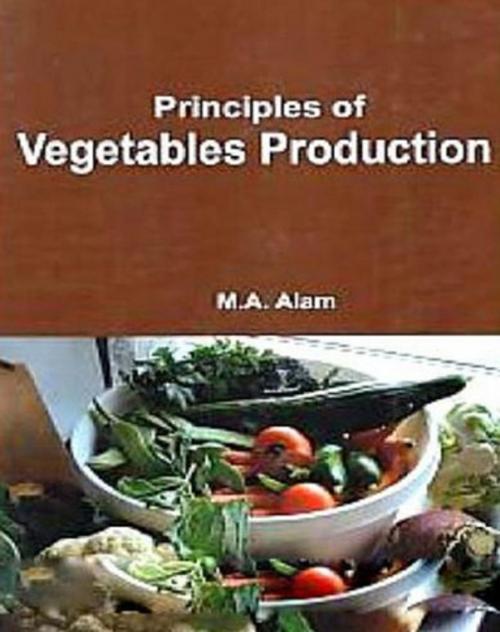Principles Of Vegetable Production
Nonfiction, Science & Nature, Science, Biological Sciences, Horticulture| Author: | M. A. Alam | ISBN: | 9789353140236 |
| Publisher: | Centrum Press | Publication: | June 30, 2013 |
| Imprint: | Centrum Press | Language: | English |
| Author: | M. A. Alam |
| ISBN: | 9789353140236 |
| Publisher: | Centrum Press |
| Publication: | June 30, 2013 |
| Imprint: | Centrum Press |
| Language: | English |
Vegetable farming is the growing of vegetables for human consumption. Traditionally it was done in the soil in small rows or blocks, often primarily for consumption on the farm, with the excess sold in nearby towns. Later, farms on the edge of large communities could specialize in vegetable production, with the short distance allowing the farmer to get his produce to market while still fresh. The three sisters method used by Native Americans (specifically the Haudenosaunee/Iroquois) grew squash, beans and corn together so that the plants enhanced each other’s growth. Planting in long rows allows machinery to cultivate the fields, increasing efficiency and output; however, the diversity of vegetable crops requires a number of techniques to be used to optimize the growth of each type of plant. Some farms, therefore, specialize in one vegetable; others grow a large variety. Due to the needs to market vegetables while fresh, vegetable gardening has high labour demands. Some farms avoid this by running u-pick operations where the customers pick their own produce. The development of ripening technologies and refrigeration has reduced the problems with getting produce to market in good condition.Over the past 100 years a new technique has emerged—raised bed gardening, which has increased yields from small plots of soil without the need for commercial, energy-intensive fertilizers. Modern hydroponic farming produces very high yields in greenhouses without using any soil. Present book has been designed to provide overall information of principles of vegetable production not only for students but for everyone interested in vegetable production.
Vegetable farming is the growing of vegetables for human consumption. Traditionally it was done in the soil in small rows or blocks, often primarily for consumption on the farm, with the excess sold in nearby towns. Later, farms on the edge of large communities could specialize in vegetable production, with the short distance allowing the farmer to get his produce to market while still fresh. The three sisters method used by Native Americans (specifically the Haudenosaunee/Iroquois) grew squash, beans and corn together so that the plants enhanced each other’s growth. Planting in long rows allows machinery to cultivate the fields, increasing efficiency and output; however, the diversity of vegetable crops requires a number of techniques to be used to optimize the growth of each type of plant. Some farms, therefore, specialize in one vegetable; others grow a large variety. Due to the needs to market vegetables while fresh, vegetable gardening has high labour demands. Some farms avoid this by running u-pick operations where the customers pick their own produce. The development of ripening technologies and refrigeration has reduced the problems with getting produce to market in good condition.Over the past 100 years a new technique has emerged—raised bed gardening, which has increased yields from small plots of soil without the need for commercial, energy-intensive fertilizers. Modern hydroponic farming produces very high yields in greenhouses without using any soil. Present book has been designed to provide overall information of principles of vegetable production not only for students but for everyone interested in vegetable production.















